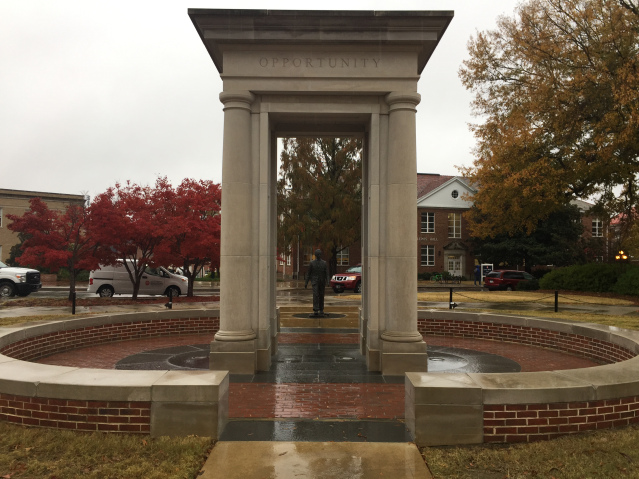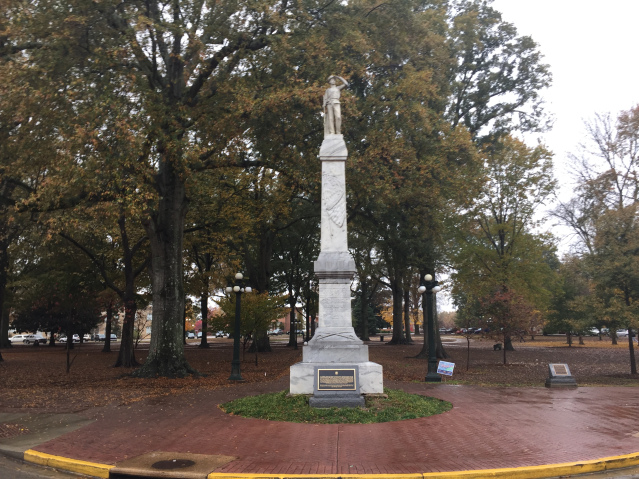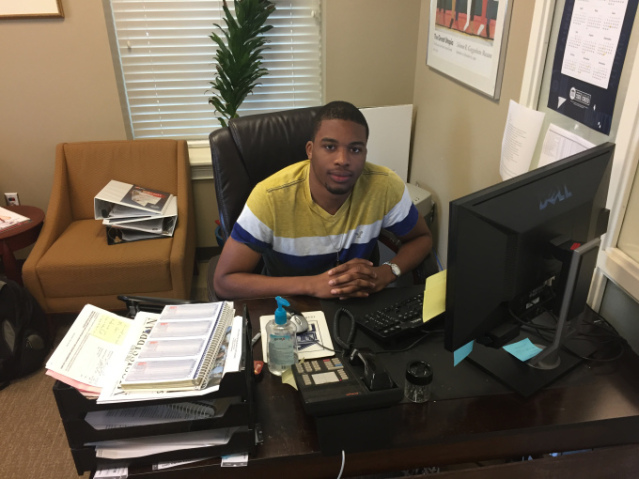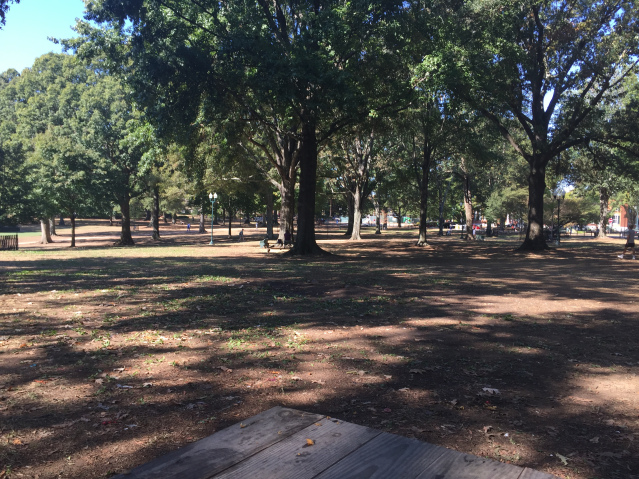Headlines
Oxford Stories: How We Talk About Race And Why It’s Important

James Meredith Statue, photo by Brantley Meaders.
According to civil rights attorney and University of Mississippi School of Law professor Cliff Johnson, talking about race is difficult for students today. However, in his profession, it’s important.
“Race is an issue we discuss daily,” Johnson said.
Most of his cases have been federal class action lawsuits challenging governmental conduct that fails to satisfy Constitutional requirements for certain groups of people.
In his first year teaching law at the University of Mississippi, Johnson has already witnessed problems with race discussions in his classroom.
“White students struggle with language and are fearful of being labeled as ‘racists,’” he said. “On the other hand, African American students are uncertain as to whether they can say what they really think with frankness and zeal. If they do so, will they be labeled ‘just another angry black person?’” Johnson explained.
The issue of race intensified during the presidential election.
“While white and black students have grown up around each other, I question the extent to which they really know one another and feel comfortable speaking frankly about our tortured past and our complex present,” Johnson said.

Confederate Memorial Statue. Photo by Brantley Meaders.
Even though we have made significant progression in civil rights in the past half a century, Johnson said it is naïve to think that we live in a “post-racial” or “colorblind” society.
The presence of race and its role in our society make it an unavoidable subject, not just for civil rights law students, but for everyone engaged in the community.
Just as the presidential election has reheated the issue of race in the country, events on the Ole Miss campus in the past few years have had the same effect on the local community.
Last year, the Mississippi flag was controversially brought down on campus because of its Confederate symbolism and its association to the racial terrorism of the Ku Klux Klan.
This year, a Confederate flag was defiantly unfurled in the student section at Vaught-Hemingway Stadium in the name of “heritage” and “tradition.”
These events revealed two sides of an ongoing conflict at the University of Mississippi, which took a disturbing turn earlier last semester when a student threatened lynching on a Facebook comment section and was subsequently expelled.
So, how do we step back from all this? What does it mean to have productive dialogue?
Buka Okoye is an undergraduate student studying public policy and leadership, and is also former president of the Ole Miss Chapter of the NAACP. He believes the function of transformative discourse is not to out people as racists, but to “illuminate interpretative frameworks that people use to engage with the world around them.” Okoye said this is essential to productive dialogue.

Buka Okoye. Photo by Brantley Meaders.
“No one really chooses how they will be socialized into the world, and so the point of the engaged citizen’s discourse is to subvert, topple and uncover ideologies, not people,” he said.
Melody Frierson, a youth engagement coordinator at the William Winter Institute for Racial Reconciliation, works with young people across the state to teach respect and engagement in their communities. She said discussion is important in building relationships.
“We love dialogue,” she said. “And before you begin, the only way to truly have one that is fruitful, and one that’s freeing and safe, is to have guidelines that direct that conversation. So, we have something called The Guidepost.
“Listen deeply. Suspend judgment. My favorite one is Turning to Wonder. If someone says something that you don’t like, take a moment and try to think of what their reason is for saying that. Then turn it on yourself, ‘What makes me react that way?’”
If we can’t engage with one another and achieve productive dialogue, Johnson said the consequences will be serious.
“Our refusal to speak the truth about the sin of racism and its effects will result in an increasingly divided society,” she said. “The status quo has left Mississippi mired in poverty and pessimism. It is particularly important that we immediately commit to speaking the truth, only then can we proceed to bring about a ‘New Mississippi.’”

The Grove. Photo by Brantley Meaders.
Okoye also spoke of the importance of new discussions, particularly at the University of Mississippi.
“At UM, this is especially important because we are dealing with two vicious histories: The Civil War and the Jim Crow Era,” he said. “The need for new interpretations is vital if we are to achieve our humanity and transition our community from one way of thinking to a better one.”
By Brantley Meaders. Read more stories like this on Oxford Stories.
For questions or comments, email hottytoddynews@gmail.com.






























Anonymous
January 27, 2017 at 2:00 pm
From Article:
This year, a Confederate flag was defiantly unfurled in the student section at Vaught-Hemingway Stadium in the name of “heritage” and “tradition.”
Not true! It was the state flag for Mississippi in the student section not a confederate flag. They are two different flags. Although similar in offensiveness they are not one in the same. I am TOTALLY against both of them but it is irresponsible to put false information in print…especially in the social media world we have today.